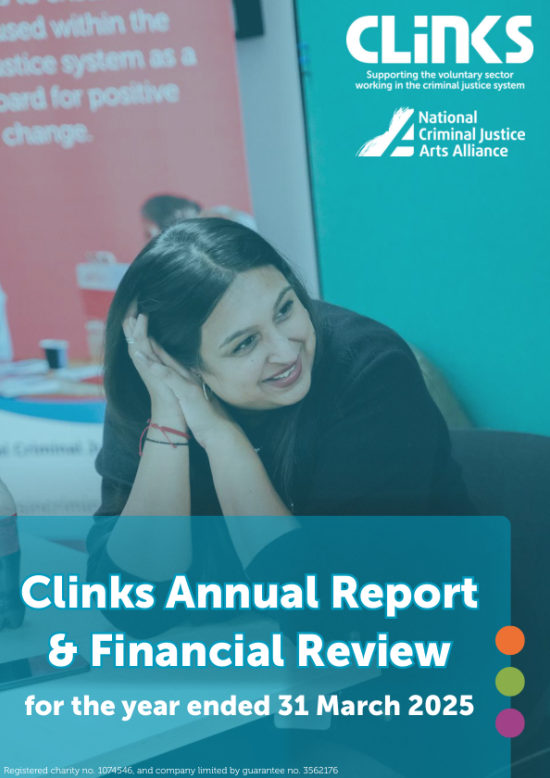This blog provides an update on what the prison regime now looks like after the implementation of national restrictions in England on Tuesday 5th January and Wales moving to alert level 4 from 19th December 2020. Information is drawn from an update issued by Her Majesty’s Prisons and Probation Service (HMPPS), as well as information gathered at a recent meeting of the Reducing Reoffending Third Sector Advisory Group special interest group on Covid-19 (RR3 Covid-19 SIG). To request weekly updates on the situation across the prison estate, please email covid19@clinks.org.
What do current regimes look like?
Rates of Covid-19 across the country have increased substantially in recent weeks, leading to further restrictions being announced in England and Wales. Alongside the increase in community transmissions, more outbreaks have also been seen across the prison estate. HMPPS also has to manage Covid-19 related staff absence. In the context of these challenges, HMPPS has implemented a number of changes to the operation of prisons.
All adult prisons in England and Wales have moved to regime stage four of the National Framework for Prison Regimes and Services. The Exceptional Delivery Models that were used under stage three are now temporarily suspended, alongside all local operating procedures agreed under stage three. Restrictions under stage four in the adult prison estate are:
- All social visits are temporarily suspended
- Use of secure video calling to support positive family ties is still available
- Compassionate visits can happen only in exceptional circumstances
- In-cell enhancements are available, such as free PIN credit, supplementary food packs and payments for those not able to access work
- Prisons are expected to ensure weekly 45-minute key worker engagement continues, and that wellbeing checks are conducted (i.e each person in prison has a meaningful daily interaction with staff)
- Prisons are expected to prioritise offender management, progression through sentence plans and preparation for parole hearings where possible
- Essential work should continue in closed prisons and there is discretion to allow Release on Temporary License (ROTL) for Covid-19 secure work placements in the community for open prisons
- Prisons are encouraged to work with education providers to continue to deliver in-cell learning wherever possible
- Access to indoor gyms, communal worship, on-wing activity and group activities are all suspended.
The Youth Custody Service will remain at stage three in recognition that there are different risk profiles and wellbeing needs when working with children. The ambition is to keep more of the regime running, depending on outbreaks, staffing and capacity of providers. Maintaining education provision is a particular priority, with face-to-face services blended with remote learning support. Social visits to children will continue subject to outbreak control measures.
What are the impacts on the voluntary sector?
Evidence gathered by HMPPS since the start of the crisis, which is supported by our report on The impact of Covid-19 on the voluntary sector in criminal justice, has shown that protracted time in cells is hugely damaging to people’s welfare. There is therefore a recognition of the need to provide greater support to people in prison during this lockdown. To this end, HMPPS has given direction to governors to prioritise key work and wellbeing checks and to ensure the continuation of services that can be facilitated in-cell.
Governors do however have a degree of autonomy to make decisions based on their local circumstances and risk. So, while HMPPS sets out the core delivery model and gives directions of what should be prioritised, regimes will look different across different prisons.
For example, many essential voluntary sector roles in prison inescapably involve moving across different prisons in a region. Recognising the risk of transmission between sites, HMPPS has communicated to prisons that they should limit multiple site working to ‘business critical’ activity. Some local governors will likely have a different understanding of what services are considered business critical.
Similarly, voluntary organisations have received different information with regards to whether they are able to deliver services in prisons, including face-to-face or small group work. Prisons have been encouraged to continue partnership working with the voluntary sector and contracted partners to ensure delivery of services in a Covid-19 safe manner, locally or remotely, to support the delivery of essential work. Governors can determine how this is done based on local risk assessments. Equally, voluntary organisations are responsible for making sure any risk assessments required by their own organisations are considered before agreeing changes to working practices.
What’s next?
The situation in each prison is being continually monitored and every Friday the HMPPS heat map panel meets to review the situation at each site. Prisons in the adult estate are not indelibly linked to the tier system around them and their status will be dependent on local circumstances such as staffing, outbreaks within prison and rates of community transmission. To receive weekly updates on the status of prisons please email covid19@clinks.org.
The RR3 Covid-19 SIG is a voluntary sector advisory group that meets regularly with HMPPS officials to discuss the latest changes to prison and probation operations in response to the pandemic and to share the experiences and perspectives of the voluntary sector. The group has now met 27 times since the start of the pandemic, and is continuing to meet when need is identified.
At the most recent meeting, attendees recommended that HMPPS better use technology to enable voluntary sector services to access people in prison during this latest set of government restrictions. This could include providing laptops and tablets in cells, redeploying existing technology in prison such as secure video calls for the purposes of accessing voluntary sector services, and better enabling voluntary services to contact people via in-cell telephony.
What's new
Latest on X
The role is for a leader from an organisation focused on racially minoritised people, with expertise in service delivery, policy, advocacy, or related areas in criminal justice. Racial disparities are present at every CJS stage. This role ensures these voices are central in shaping policy to help address and eradicate them. Apply by Mon 18 Nov, 10am. More info: https://www.clinks.org/voluntary-community-sector/vacancies/15566 #CriminalJustice #RR3 #RacialEquity

